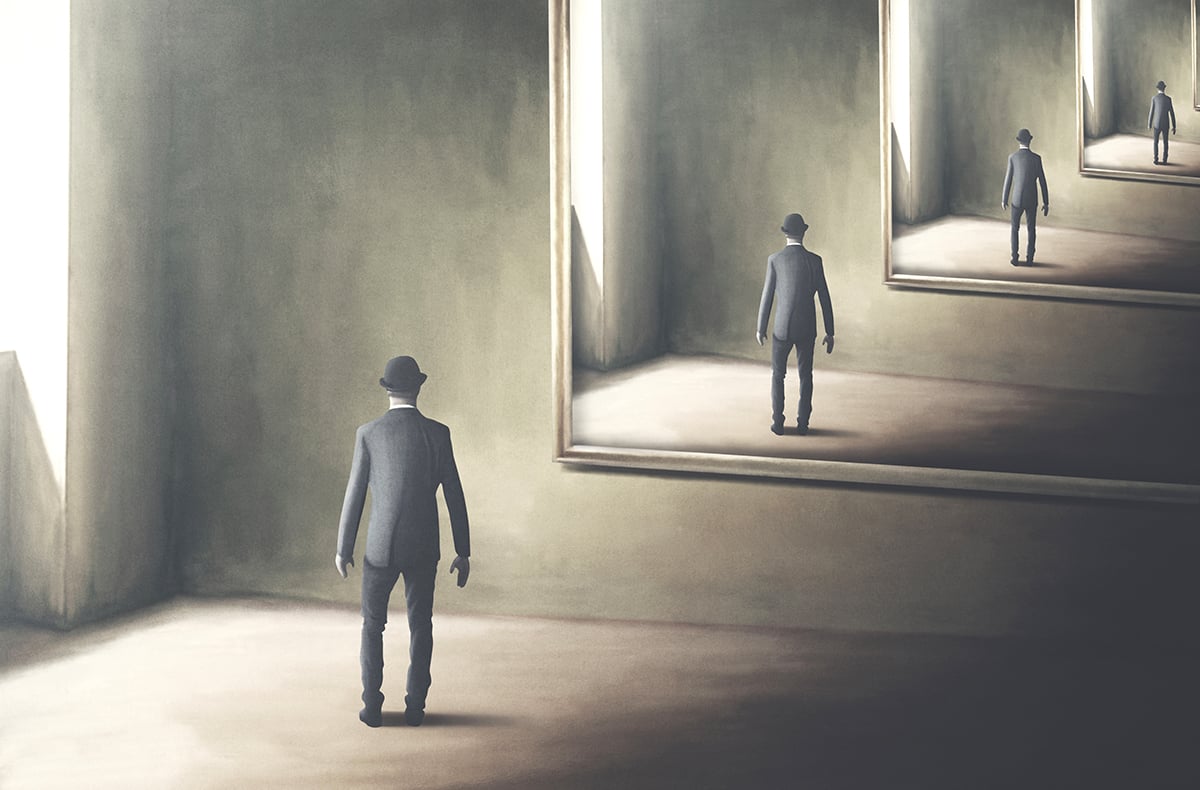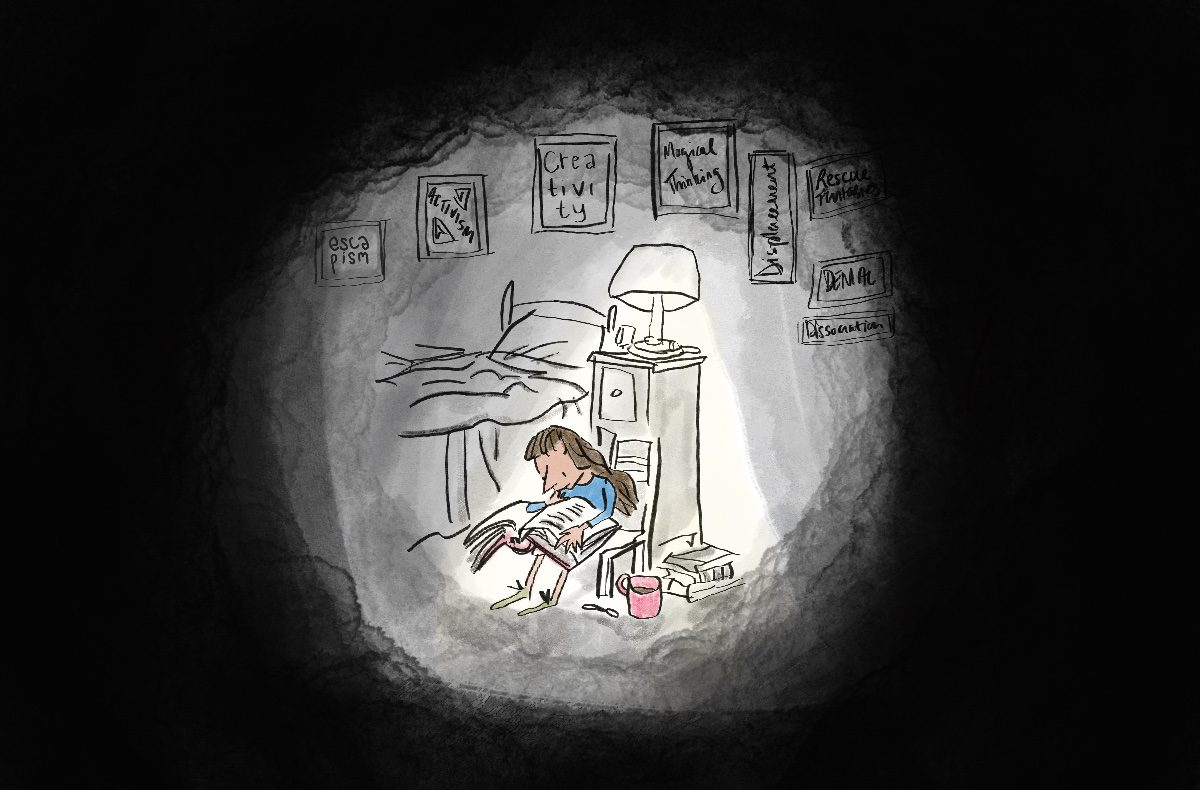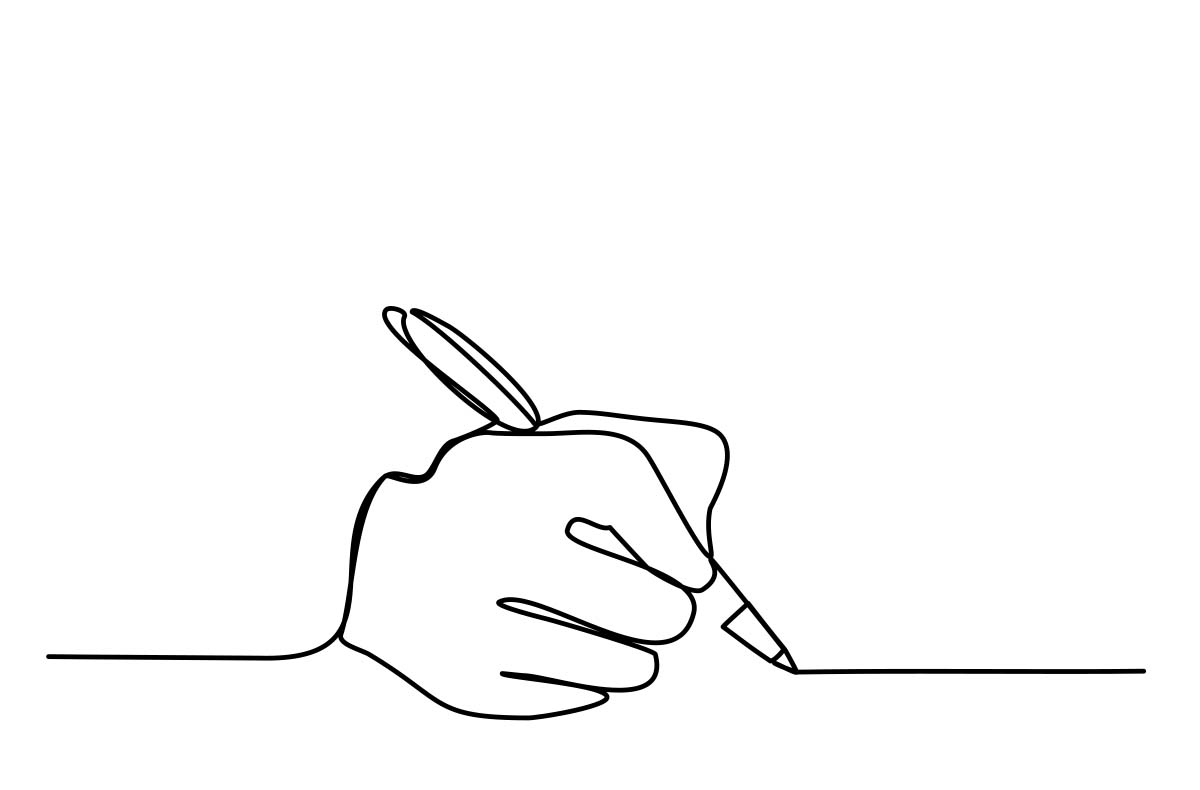
Splitting and projecting are terms that belong to a branch of psychoanalytic psychology known as Object Relations Theory, extensively developed by Melanie Klein, a child psychoanalyst who built on Sigmund Freud’s work. Whilst there are many aspects of Klein’s theory that have been criticised due to their controversial nature, the concepts of splitting and projecting—especially in their relevance to adult functioning and relationships—remain important and worthy of discussion.
Splitting is a defence mechanism, which leads to what is known in Cognitive-Behavioural Therapy terms as “black and white thinking” or “all or nothing thinking.” It involves a process whereby we see ourselves, or others, as only having good parts or only having bad parts. So, instead of viewing ourselves or others as multifaceted human beings made up of many different parts in various colours and shades, we separate the perception of a whole human into a part-human, which can lead to either idealising or villainising.
Think about how you felt the last time a driver cut you off on the road. If you thought he was the biggest arsehole on the planet, that’s splitting. Your perfect son, who never puts a foot wrong? You’re splitting. The last time you told yourself that you never get things right, that no one loves you, that you’re fundamentally flawed? That’s splitting. And it makes sense, because you may have been taught to split, learning to disown parts of the self from a parent or guardian, or this behaviour may have helped you when you needed it. For example, you might not have received love and attention as a child unless you behaved perfectly, and so now you believe that your son has to be perfect too. You may have been handed down messages about how flawed you were, and you couldn’t have known better but to believe them.
The problem with splitting is that the parts of ourselves that we split off—the parts we aren’t in touch with—are like sleeping dogs—but not the kind that lie still. They are sleeping dogs that wake, again and again, in unexpected ways, at unexpected times. Because guess what? We’re complex humans, and it’s healthy for us to own all of our parts.
One way in which those “sleeping dogs” can awake is through projection. Projection is a process whereby we unconsciously attribute our split off parts to others, when they actually belong to ourselves. And we might have all sorts of reactions that result from our projections. For years, I had split off the angry parts of myself (as, unfortunately, many women have been socialised to do. By the same token, many men have been socialised to split off the vulnerable parts of themselves). I had split off my anger, because there was a time when it was genuinely unsafe for me to have felt and expressed this emotion. As a result of my splitting, I would often see anger in everyone else, and I’d be scared of them or even might have unconsciously resented them for being able to feel something that was extremely difficult for me to feel myself. Obviously, this didn’t work: my split off anger needed to come out somehow, and it ended up manifesting internally as self-directed anger. Nowadays, whilst anger still isn’t my most accessible emotion, I am able to recognise when my criticism of “an angry person” is really a projection. I also realise that I no longer need to fear my own anger. Anger is a feeling just as valid as any other; to be our full selves, we need to connect to our full range of emotions.
When we cut off parts of ourselves, we can cut off more than we intend to. For example, we might disconnect from the parts of ourselves that feel playful and fun, taking on an overly serious attitude instead that leaves us feeling unable to let go, which can lead to rigidity in interacting with others. Not surprisingly, splitting and projecting can affect relationships. “I always do everything and she’s always lying on the sofa being lazy.” Or “he’s so good at relationships and I’m not good enough.” Or “she’s always so emotional about it and I don’t get why she can’t see it logically.” Any of these sound familiar?
This phenomenon also can affect how we respond to current events and public figures, taking nuance out of our worldview and encouraging close-mindedness. Think about the mask-wearers versus the non-mask-wearers during the start of the pandemic. Think about the way some people relate to celebrities as either “perfect” or “awful”. Or entire groups of people, for that matter: splitting is involved in racism, homophobia, and other forms of discrimination. It also can be a key component in self-hatred, fueling self-destructive thinking. “I am always going to feel bad like this.” Or “I don’t like any aspect of who I am.”
The first step in changing any largely unconscious process such as splitting and projecting is awareness. Bringing to consciousness the parts of ourselves we have cut off and recognising when we may be projecting is necessary before we can do any reclaiming of lost parts. Use a tool like The Feeling Wheel to pick out the emotions you struggle to feel and try and think about why those emotions have been discarded. Notice when you have very strong feelings towards another person—whether they are positive or negative—and try to think about how those perceptions of them may actually belong to you. This can be difficult work to do alone, which is why therapy can be especially helpful. Often an outside eye can easily recognise a behavioural pattern that is entirely invisible while living within your own experience: it’s always a good idea to seek professional assistance.
Connecting to aspects of ourselves that have been “sleeping dogs” for years, owning the attributions we place onto others, holding contradictory, full perceptions of ourselves and others in mind without denying parts of them, and finding a balanced, healthy way to feel everything, takes a lot of work. But it’s also liberating, because in the process, we undo the painful narratives of our pasts that supress what it means to be a whole, complete human. And you will be able to realise how whole and complete you are when all parts of you are fully awake.



